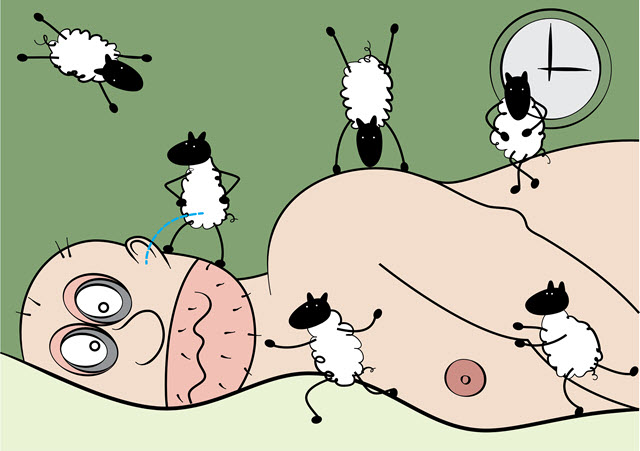Symptoms and Signs of Insomnia
Do You Have Any of These?
Statistics from the National Institutes of Health indicate that a shocking number of Americans believe they suffer from insomnia. Over 40 million alone report chronic and/or acute insomnia symptoms. Chronic insomnia is long-term sleep deprivation. These folks are not sleeping night after night. Another 20 million report they’ve had temporary episodes or bouts of insomnia. And as you move into adulthood the chance for experiencing short-term insomnia increases. Most grown adults can easily say they’ve spent a sleepless night anxious or worried over something going on in their lives.

Faced with a survey on sleep deprivation, though, could you identify all the signs and symptoms of insomnia and be able to report back on your own?
Signs versus Symptoms: in medical-speak signs are different from symptoms:
- Signs. Think “vital signs” and you might remember that signs of something are real physical indicators. You can measure them and see them.
- Symptoms are subjective and based on what you feel not on something that can be visually observed. Symptoms are what you say you feel.
Insomnia Signs
Given the definition above then the signs of insomnia are those outward indicators of sleep deprivation, measurable visuals that are interrupting your home life and work life. Here are the common signs of insomnia and serious sleep disturbance:
- Can’t go to sleep at night
- Wake up without provocation
- Can’t return to sleep once you’ve woken up
- Irritability
- Mood swings
- Sleepy during the day
- Fall asleep immediately if you sit down or lie down
- Concentration is shot
- Memory problems
- Trips, fall, accidents
Insomnia Symptoms
Remember, symptoms differ from signs—they are unscientific, something being experienced or felt:
- Tired
- Toss and turn in bed
- Complain about concentration
- Feelings of anxiety
- You lose patience quickly
- Feel very fatigued
- Forgetfulness
- Feeling clumsy
Look over those lists. First the signs and symptoms if related to a doctor could indicate any number of problems. But this is the thing to remember about insomnia: it’s a symptom of various other problems, which in turn have their own lists of signs and symptoms. Possibly the biggest challenge with insomnia is actually seeking help for it and in turn ultimately decoding your body’s real problem, ie depression or acute anxiety.
